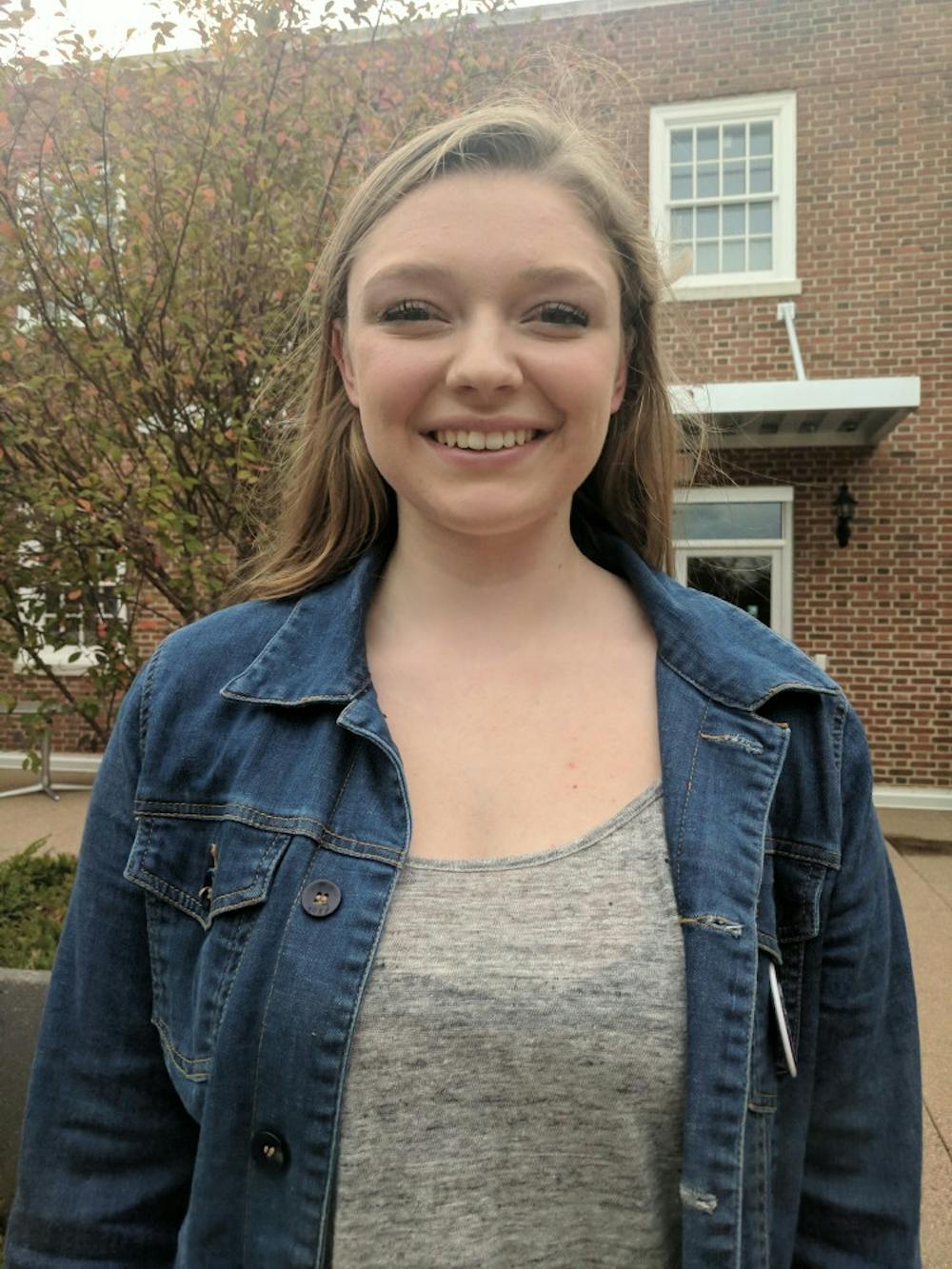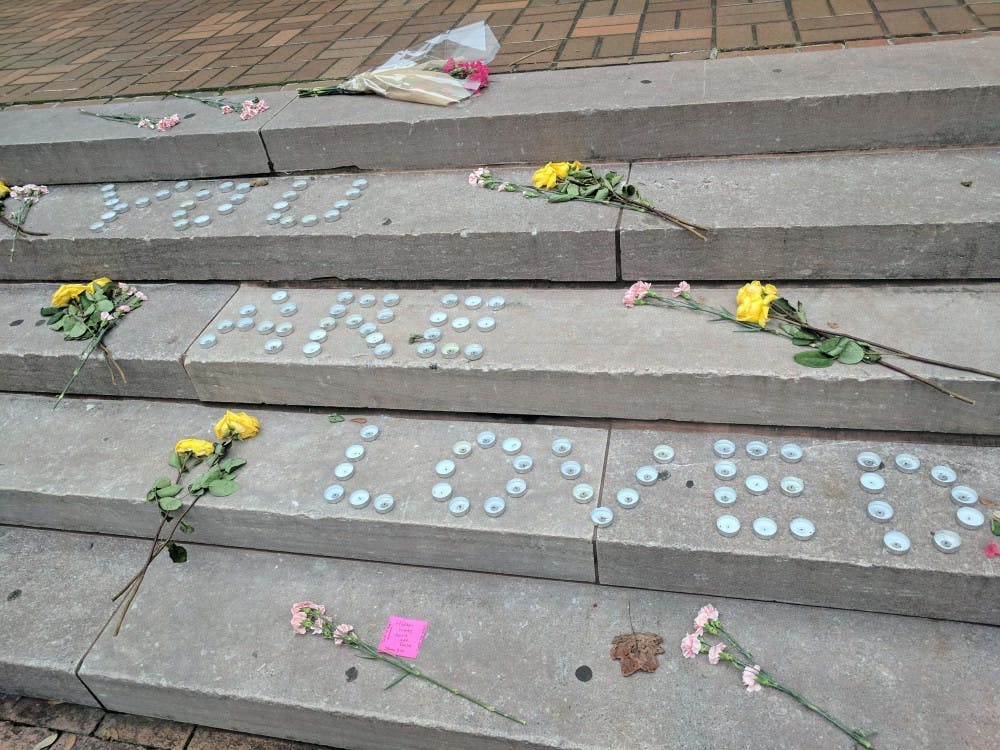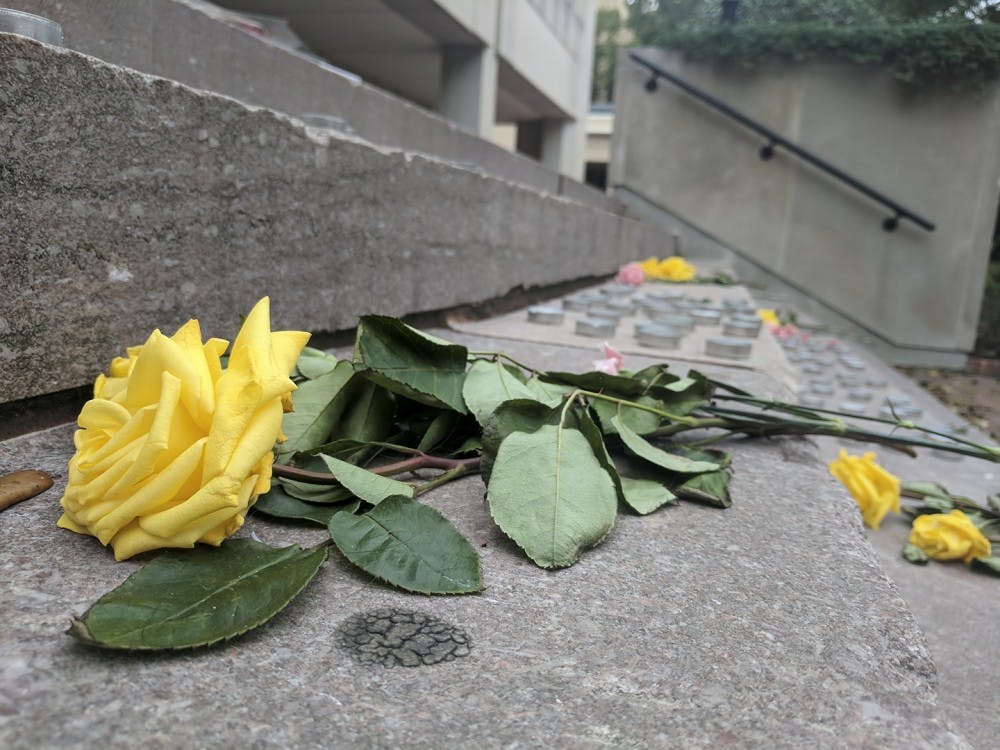Markos Hurtt didn't realize anything was wrong when he first started worrying about paying for college. He just picked up a job. And then another. And then another.
"I kind of felt myself starting to spiral," Hurtt said. “I feel all this pressure and it’s kind of tearing at my thoughts and I can’t really focus.”
On USC's campus alone, two out of every three students report feeling overwhelming anxiety in the past year. Almost a third of students have felt so depressed it was difficult to function in the past 12 months.
"I think college students are definitely more affected by mental health conditions and stress specifically," said Katie Cohen, the Student Government secretary of health and wellness. "College students are so stressed."

Yet, mental health isn’t given the attention it needs and struggling students often face stigmatization, according to Cohen. She has planned Stigma Free USC Week to spread awareness of mental health on campus and help combat stigmas, held Oct. 9-13.
“[Mental health] is something that unfortunately is an issue on all college campuses, and especially after the events of today our campus as well,” Student Body President Ross Lordo said Oct. 6.
A USC doctoral student had committed suicide.
“Our hearts are with her family and we grieve with them as their extended Carolina Family,” University President Harris Pastides wrote in a campus-wide email sent out that afternoon.
In the National Collegiate Health Assessment, 1.9 percent of college students reported attempting suicide in the past 12 months. At USC, it was 1.5 percent — about 500 students.
“It may have happened on our campus today and that has affected me,” Cohen said on Oct. 6. “But at the same time, it happened on a different campus yesterday, and it happened at a different one the day before that.”
She has been planning the mental health awareness week since Lordo asked her to join his cabinet after being inaugurated in March. With the support of Student Government and Student Health Services, she's expanded previous smaller events into Stigma Free USC.
Throughout the week, Cohen has three main focuses: increasing awareness with daily flier handouts, planning events centered on daily mental health management and telling the stories of students who have struggled with their own mental health in some way.
“We don’t want to just spout out information and say come to these events, we also want to provide this real, personal level kind of aspect,” she said.
Three student stories are currently highlighted on the Stigma Free USC website, with more planned to be added throughout the week.
One common symptom of many mental health issues is feeling alone or like no one understands. Cohen experienced this symptom herself when she first started struggling with depression and anxiety in elementary school.
“When I was growing up and people didn’t really talk about [mental health], when you started having problems like that you thought you were insane,” she said.
Alexis Michalos, a fourth-year art history, English and history student, remembers a friend in high school saying, "Oh, there's Alexis, she's going to have another panic attack."
“I think we make a lot of assumptions about our students that are not necessarily accurate,” social work professor Melissa Reitmeier said. “I love the Mental Health Matters campaign and I love that a lot of students are willing to share their stories because my hope is that it will empower other students.”
Reitmeier won a $500,000 grant to educate social work master's degree students on dealing with mental health in rural South Carolina and said many of the same stigmas and challenges with mental health exist on college campuses.
"There’s a lot of stigma around mental health and what it is," she said. "I really push for us seeing it as a health care need."
Reitmeier said USC is doing a good job at addressing mental health, especially with offering 10 free counseling sessions. For students who aren't ready to take the step of scheduling an appointment or talking with an adult, Cohen has started a peer listening group called Gamecock Reach.
Cohen described the group as "more casual and less scary" than traditional counseling, such as holding an event called "Ventis and Vent" Wednesday as a part of Stigma Free USC Week.
Other events, including a cooking demonstration taught by First Lady Patricia Moore-Pastides, address college-specific mental health stressors like poor diet and bad sleeping habits.
Because being open helped Cohen deal with her depression and anxiety, she said that she hopes the week will help other students talk about what they are going through.
"Everyone stresses out, everyone has some form of anxiety, and it’s actually really relatable," Hurtt said.


